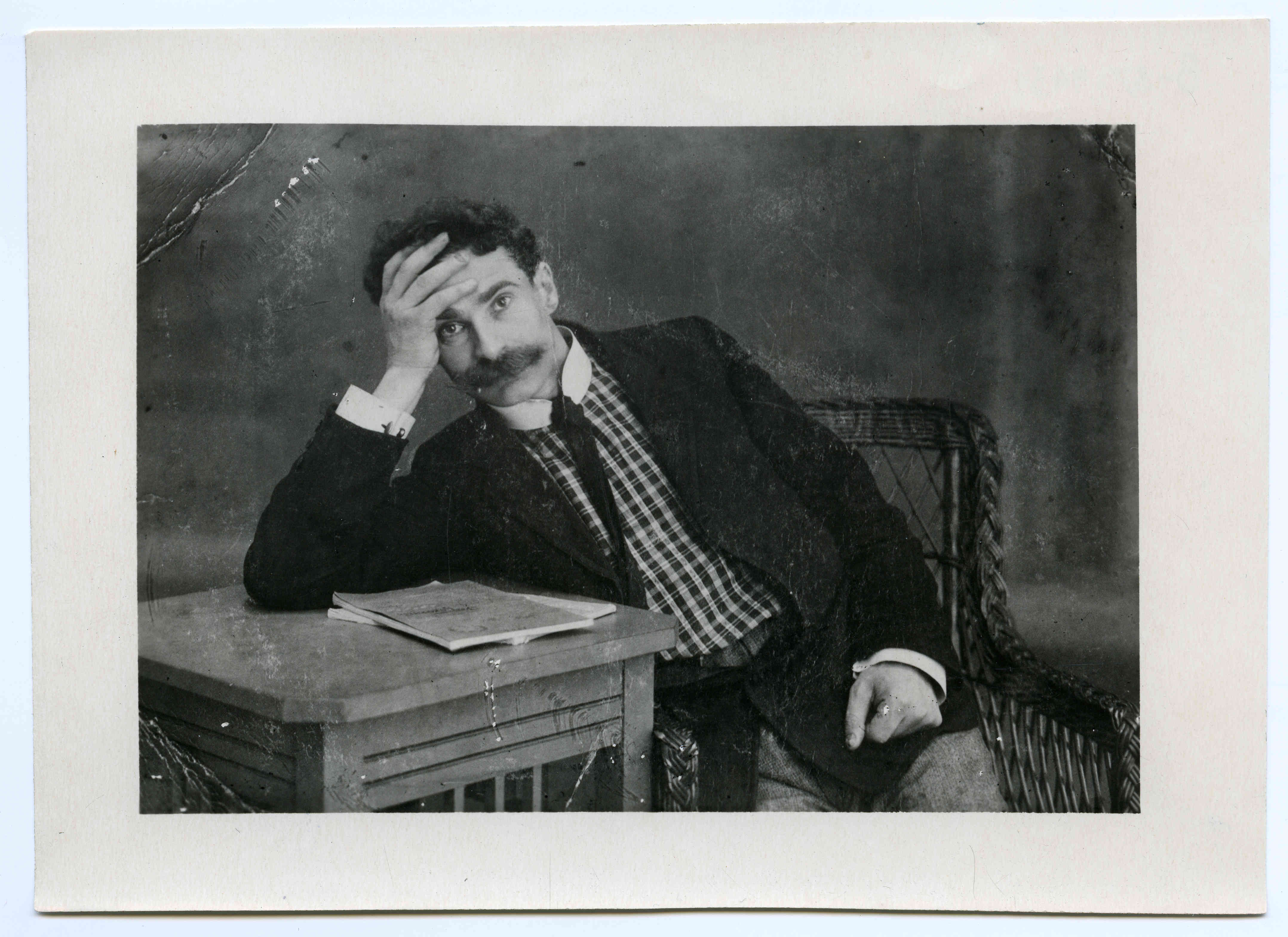
Villem Buk
Villem Buk (up to 1917 Buck, 25 III 1879 – 1941) was a prose writer, poet and columnist.
Buk was born in Kambja parish, Tartu County as the son of a smith. He attended Kambja village school and Maaritsa parish school, later continued his studies constantly by self-education. Buk acquired the qualifications of a teacher and worked thereafter as a schoolteacher at Kambja, Luunja and Põlva. When working at Põlva, he acquainted himself with Marxist literature.
In 1907, Villem Buk was detained for political activities and was imprisoned for six months, after which he was forbidden to live in the Baltic governorates, the capital of the Tsarist Russian Empire and centres of governorates. He was banished to Petseri (Russian Pechory) where he acquainted himself with the life of local Estonians and Setos (Orthodox south-eastern Estonians with a distinct culture and dialect), writing about them the book Petseri eestlased (‘Estonians of Petseri’). One of his first stories, Enne rukkilõikust (‘Before Harvesting of Rye’) dates from the same time.
In 1910, when his banishment ended, Villem Buk moved to Viljandi and started working for the Malev newspaper, which was published there. During his Viljandi period, Buk wrote the stories Kraav (‘Ditch’) and Jumala rahvas (‘God´s People’) and the prison diary Kivine raamat (‘Stony Book’).
In 1911, Villem Buk moved to Narva where he contributed to the newspaper Tallinna Teataja in 1912–1914 and organised the publication and editing of the Narva newspaper Kiir. After Kiir was closed down, Buk moved to Tallinn and worked as health insurance secretary at Franz Krull’s factory and continued his political activities. He was arrested and banished to Irkutsk governorate. After the February Revolution in 1917, Villem Buk returned to Tallinn where he started working at the editorial office of the re-established Kiir newspaper. In the autumn of the same year, he moved to Vohnja parish and became schoolteacher at Palametsa school.
In 1918, Villem Buk evacuated to Petrograd where he worked for the Estonian newspaper Edasi. He remained in Russia, participated in the Civil War and, thereafter, worked as a teacher in several towns of Russia. Villem Buk participated in the work of the Estonian Proletarian Writers’ Association and the Estonian publisher Külvaja in Leningrad. In 1941, Villem Buk came to Tartu. When the German occupation forces approached Estonia at the beginning of World War II, Villem Buk did not evacuate together with Soviet activists. To leave Estonia, he tried to cross Lake Peipsi in a boat but went missing.
In Buk’s creation, particularly in his essays and articles, Marxist tendentiousness prevails. His poetry collection Sula (‘Thaw’) contains propagandist verses glorifying the communist coup. Critics have found artistic values primarily Buk realist prose depicting village paupers.
L. P. (Translated by I. A.)
Books in Estonian
Stories
„Juku“ elulugu. Tallinn: Mõte, 1909. 14 lk.
Kolm suurt muret [jutustused]. Tartu: J. Reevits, 1909. 48 lk.
Jumala rahvas. Tartu: F. D. Liblik ja Ko, 1911. 32 lk.
Kiwine raamat: Wäljawõtted vangi päewaraamatust. Tallinn: Teadus, 1912. 38 lk.
Miina. Narva: Rahva Sõna, 1913. 160 lk.
Kahekesi. Peterburi: Eesti töörahva kommuuna kultuura ja hariduse valitsus, 1919. 15 lk.
Poems
Sula: kogutud sulesaadused ajajärgust 1905– 1926. Leningrad: Külvaja, 1926. 72 lk.
Long poem
Lina. Narva: Kõne, 1913. 14 lk.
Plays
Kodukäija: näidend kolmes pildis. Leningrad: Külvaja, 1925. 30 lk.
Essays and articles
Petseri eestlased. Tartu: Postimees, 1909. 79 lk.
Rahwas ja maa. Tartu: J. Reevits, 1909. 140 lk.
Töörahwa ajakirjanduse ülevaade: 1905–1917 (Wõrdlused Eesti kirjanduse ajaloost). Tartu: Ed. Bergmann, 1917. 30 lk.



